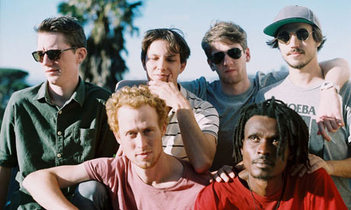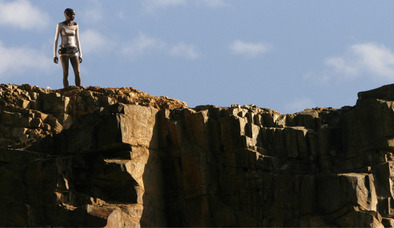0 Comments
 Band-leader of Planet Mu's eclectic South African group John Wizards, John Withers, goes through some of his favourite tracks of current South African music on Hyponik's Youtube Sessions. I particularly liked Webaba by Culoe de Song, featuring Busi Mhlongo. An unusual house track with stirring strings and whirling vocal loops that run along a tight click-clack beat. Here's a terrific track by Busi Mhlongo: I'm adding a couple of tracks that I love from outside of South Africa. First, a song with the kind of killer poly-rhythmic beat and uplifting chorus that Benin does so well, Gnonnou by Don Metok: Scotland's Africa in Motion film festival has just finished so I thought I'd write about the African sci-fi and fantasy cinema that is of particular interest to me.  Pumzi, written and directed by Wanuri Kahiu Pumzi, written and directed by Wanuri Kahiu Afrofuturism is an aesthetic born of the African diaspora and found in afro-centric visual art, music and literature. The aesthetic unites science fiction, historical and alternate-history fiction, magic realism, fantasy, and African myths in the context of 20th-century technoculture. Originating in the music and persona of Sun Ra, but defined by Mark Dery in his 1995 essay Black to the Future, the Afrofuturist aesthetic foregrounds Black agency and creativity. Sandra Jackson and Julie Moody-Freeman, in The Black Imagination and the Genres, define the core principle of Afrofuturist fiction as: “Imagined futures in which African descendant people as well as other people of color are neither conspicuously absent nor marginalized as background or expendable characters, but…instead not only present but rather active agents—protagonists and heroes—in events which take place here on the planet Earth or elsewhere in the universe, set in the past, alternative pasts, distant and near future times”. Although conceived outside of Africa by Afro-Americans, Afrofuturism has a proven reflexive relationship with the old continent. The separation between the speculative fictions of the diaspora and native Africans is less distinct that in the 1950's, when Afrofuturism was born. Looking at African speculative fiction and fantasy cinema through the scope of Afrofuturism connects the geographical separation from heritage felt by the Afro-American artists to the dehistoricisation and cultural alienation inflicted on native Africans by colonial oppressors. The artist and writer Tegan Bristow, in her article We want the funk: What is Afrofuturism to the situation of digital arts in Africa?, published in the journal Technoetic Arts, considered how the ideas developed through Afrofuturism are being explored in contemporary African arts. Often this development is discussed alongside the unique use of communications technology by Africans, such as the Kenyan phone banking system or BRCK. Although often dismissed as technologically backwards, and therefore unable to express the same speculative fascination with technology as the West, Africa defies simple stereotypes and is producing great science fiction and fantasy art, from an African perspective. Afrofuturism is now more than just an American aesthetic, being taken up by Africans and becoming a more global celebration of Black culture. |
Archives
November 2023
Categories
All
LinksWriting
Art & Design Science Music Film All contributions by Kieran Gosney unless otherwise stated.
© Kieran Gosney and kierangosney.com, 2013. Unauthorized use and/or duplication of this material without express and written permission from this blog’s author and/or owner is strictly prohibited. Excerpts and links may be used, provided that full and clear credit is given to Kieran Gosney and kierangosney.com with appropriate and specific direction to the original content.
|

 RSS Feed
RSS Feed